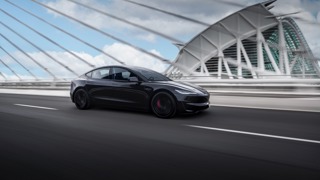The fleet industry has come out in favour of leaving the European Union, despite warnings that used car prices could fall and rental costs could rise.
More than half (51.6%) of the 670-plus respondents to the Fleet News poll backed Brexit, with 42.8% voting to remain and a further 5.6% still undecided.
That compares to an Institute of Car Fleet Manufacturers (ICM) poll suggesting a 52:48 split in favour of leaving the EU as the referendum campaign continues to gather steam.
However, if the UK does vote to leave the EU, Debapratim De, senior analyst in Deloitte’s economics and markets research team, warned: “Businesses should be worried about the reduced availability and higher cost of finance.
“There will be a short-term credit crunch. Sterling is likely to fall between 25-30% against the dollar; probably depreciate against most major currencies and might reach parity with the euro.”
The RAC says that a 20% fall in the value of the pound would – based on current exchange rates – add £2 to the cost of filling up an average car.
De told delegates at the Vehicle Remarketing Association’s (VRA) sixth annual conference that the depreciation of sterling would inevitably mean the price of imports would rise.
“There will also be a drop in business investment and a drop in business confidence,” continued De. And in terms of fleet investment, he believes that could result in businesses running vehicles for longer.
But trade body the Society of Motor Manufacturers and Traders (SMMT) said it is concerned about what charges could be imposed on business.
Colin Tourick, Grant Thornton professor of automotive management at the University of Buckingham business school, explained: “As members of the EU, we enjoy the tariff-free movement of goods across the EU.
“This would have to be negotiated, post-Brexit, and no one knows what deal we would end up with. If vehicles were to cost more, lease and daily hire rentals would rise, company car drivers would pay more tax and they and their employers would pay more national insurance.”
Tourick believes a decline in economic activity could also hit used car prices, which have been buoyant for years.
“If people are concerned about their jobs, rising interest rates or the rising cost of replacing their car, this will drive down used car prices and lease rentals will rise,” he said.
“A leave vote would bring with it a period of uncertainty and recrimination, none of which would be good for industry in general or the fleet industry in particular.”
The SMMT has suggested that the UK could face tariffs of up to 10% – a significant cost in an industry with notoriously tight margins – and it could take years for new trade deals to be agreed.
Several manufacturers, including Toyota, Nissan, Vauxhall, BMW and Jaguar Land Rover (JLR) have warned against leaving the EU.
David Betteley, director of global financial services at JLR and a past chairman of the Finance and Leasing Association (FLA), said: “Our view is that we should remain, because Europe is a really important market for us and, secondly, we buy a significant amount of components in Europe.”
There were similar concerns from BMW. Ian Robertson, member of the board of management at BMW, said: “The free movement of components, finished products and skilled workers within the EU is extremely beneficial to British-based business.
“We firmly believe Britain would be better off if it remained an active and influential member of the EU, shaping European regulations which will continue to impact the UK whatever the decision.”
It is clear that, in the short-term, costs would most likely rise because sterling would dip and there would be a period of economic uncertainty.
“But in the long-term,” concluded Tourick. “That’s neither known nor knowable at this stage.”























bob the engineer - 16/06/2016 08:50
Quite happy for the EU to 'try on' a tariff war. Yes we make quite a lot of cars here but many are for other markets too so not affected. We do however import vast numbers of German vehicles so if they want to play games we can slap hefty tariffs on those in response. It would affect their sales severely and we would survive, can someone driving an X3 not get by in a home grown CRV or Qashqai? The new forthcoming Civic instead of a Golf? plenty of popular Japanese and Korean cars that will be tariff free to choose from. It may even re-educate many that there is actually life beyond a German badge. Lets face it, our overcrowded roads are of little use to 'performance' vehicles the German brands like to give us. Result is less deficit for us, massive loss of profits for Germany. JLR are squeaking about the effects on them but lets be candid, all their products sell more on other factors such as off-road ability, prestige or aspiration than price so a tariff is going to affect them less than most. If you can afford a £65,000 Range Rover Sport then a £70,000 price isn't going to stop you either if that's what you want. Other manufacturers are not stupid and if there are gaps in the market they will fill them, many brands such as Mercedes have substantial worldwide manufacturing such as in the USA, I have no doubt they would start running lines there and importing to us avoiding any EU punitive tariff war. -- it WILL be OK! take back control on Independence Day